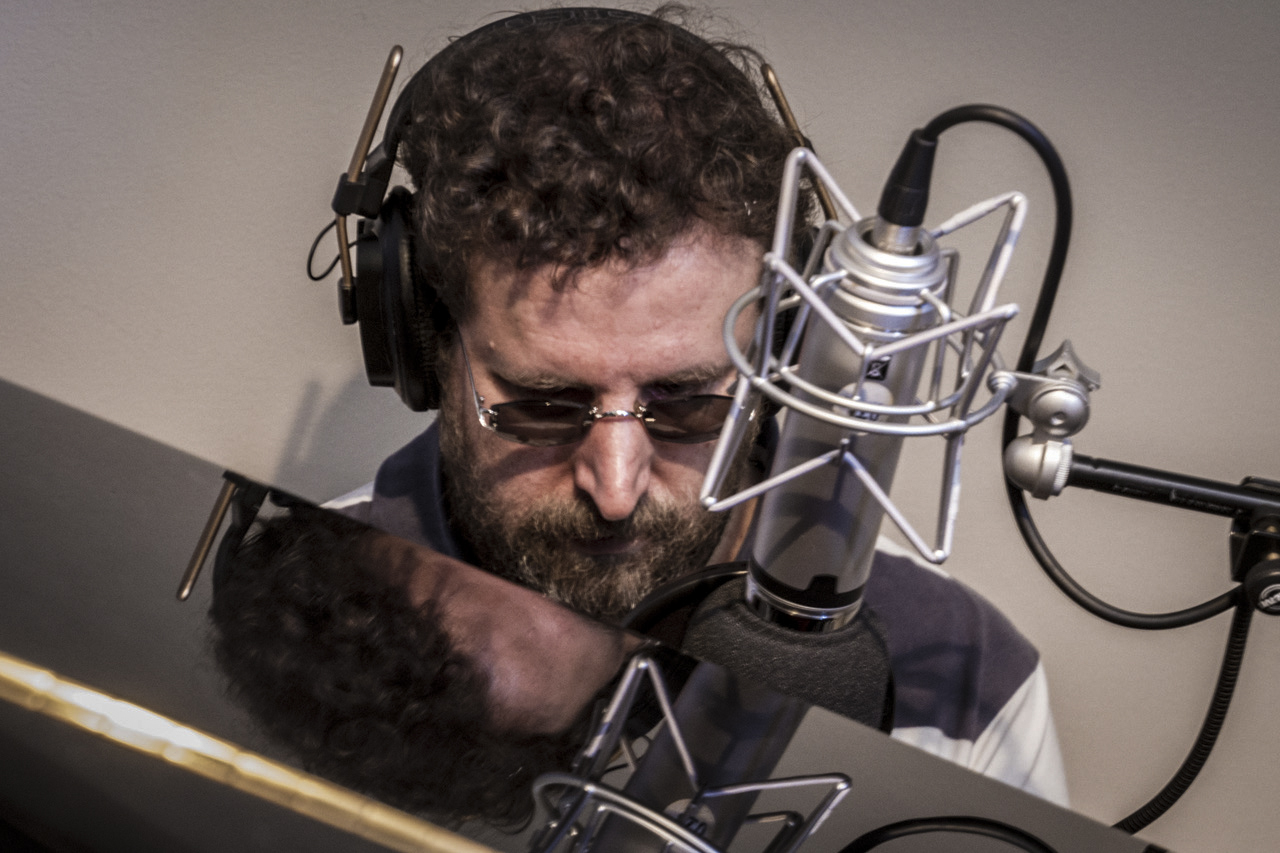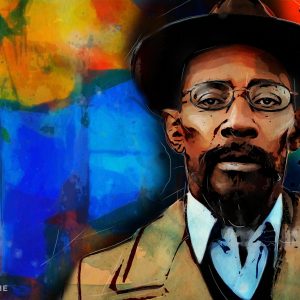Poetry Review | An Illuminated Darkness
Jacques Coetzee’s crystalline poetry collection marks a new and exciting moment for publishing and accessibility in South Africa.
Author:
30 September 2020

Rage and reflection are held in perfect tension in Jacques Coetzee’s An Illuminated Darkness, published by uHlanga Press. In poems that range from confessional to conversational in tone, imbued with Coetzee’s signature musicality, the poet portrays an emotional landscape with rich, sensuous detail. His life as a poet, musician and blind man is articulated in fluid stanzas that strike a perfect balance between being reverent and darkly comedic.
“I would read myself out of that place, and into another,” he says in The Steps. The line is particularly poignant, given that the collection is being made accessible to visually disabled readers in a partnership between Nick Mulgrew, of uHlanga Press, and BlindSA.
‘Trying to catch the world in a net of words’
“As publishers, we have to examine ourselves and our practices,” says Mulgrew, who was determined to produce a book that would also be accessible to Jacques himself. BlindSA were excited to produce the Braille copy of Jacques’ collection, despite the staggering costs. Producing a Braille book can cost R9 000 for the master copy. “Even up to R15 000,” adds Michelle Louw, a datatypist and digital accessible information system (DAISY) specialist at BlindSA. DAISY is a book format that is accessible to print-disabled readers.
Louw says it is costly being partially sighted or visually impaired in South Africa, where access to books is hindered by distribution, cost and copyright issues.
Braille paper is imported from Europe, for example. And the South African government is yet to ratify the Marrakesh Treaty, which would allow for copyright exceptions in publishing to make books more accessible to visually disabled readers.
Related article:
“We’re waiting on the government to ratify the Marrakesh Treaty, and we need that in order for publishers to consent to DAISY and Braille editions of books,” says Louw. She hopes that more publishers will allow people to access books digitally through BlindSA’s e-library, which has been inspired by the publication of Coetzee’s book.
“I’m very excited that the book will be available in Braille,” says Coetzee. “Access to books remains a major problem for visually impaired people. The new market for audio books has helped a lot, but Braille is a wonderful medium. Nothing else gives one that unmediated access to a text.”
Layered verses
An Illuminated Darkness is layered but not overly complex. Coetzee profoundly articulates and invites multiple readings of his powerful reckonings with the body and blindness, and all that orbits it.
“I realised that I could not escape anything by not writing about it,” says Coetzee, of this second collection. His first was The Love Sheet, jointly written with Barbara Fairhead. “I realised that I would have to write myself deeper into blindness, to try to understand it. Without knowing that, I couldn’t have written this book.”
Related article:
In lines like “Heart, you are too stubborn, too afraid to ask for directions,” the poet reproaches himself for old resentments, addresses lovers past and present and speaks tenderly to his parents in poems that read like musical compositions. The poet’s touch is light as he addresses tough subject matter: ableism (discrimination and social prejudice against people with disabilities), love, bereavement and longing.
“I kept thinking about something Yeats said,” Coetzee says, “that rhetoric is the result of our quarrel with others, and poetry is the result of our quarrel with ourselves. I wanted my arguments with myself to be more intelligent, and less circular.”
Perhaps the greatest discovery in this collection is the absence of obfuscation. Coetzee’s honesty, dry wit and romance are gorgeously written into poems like Re-Enchantment and Sorcery, which feel like invitations to join in on the poet’s most intimate moments.
Laughing and grief mark out the middle C in this collection; with longing tempered by quiet laughter in poems like On Composition, ½: Talking to an Actress in Constantia Mall and Dian. Remembrance never turns morbid in the collection, and comedic moments are captured with grace and sensitivity, as the poet and reader are “translated also/ to each other there, to our enlarged selves”.
Coetzee wields humour as a tool with which to subvert the ableist gaze and confront the pity of religious figures and evangelical Christians who stumble over themselves to pray for him. To this, the power agrees that there are jokes in the poems, which I argue are an antidote to grief. “But really,” he says, “I think laughing and grief are both antidote to indifference and cynicism. They are two sides of the same coin.”
In process: ‘Such fierce, shared communion’
In the poem Mirrors, the echolocative power of music and poetry moves Coetzee to confess: “I thought I could keep my mind steady/ because I had escaped the despair of mirrors.” He recalls the longings of a younger, idealist self who thought he could “unhook himself from his own past” and “from the faces he sensed”.
“I look for places where I don’t exactly agree with myself,” says Coetzee of his writing process. This is similar to the way he writes music. “I try to get under the skin of the moment.” The reader senses this nervous energy, this hunger to “slip beneath the surface of this moment” and face difficult subject matter head-on: the immutability of death, and the realities of the body.
“I was sure he only saw my blindness and not me, trapped inside it,” he writes in The Gatekeeper, resentful of generosity he interprets as pity, a grown man remembering the stubbornness of his boyhood.
Related article:
And in this collection, there is love, and so much of it. In Morning After, the speaker gently recognises his body that “he knows he must learn to love again/ as his”. He calls to mind the many acts of “unacknowledged grace” that scaffold identity, and sharpen one’s sense of what it means to live and love in a world where “we grieve, and we are not afraid”.
These poems offer a portrayal of boyhood, sexuality and love let “into the world again, transformed”. This is a remarkable collection where “bones dissolve” and language stops “dead at the gate of the mouth”, with an aesthetically-sound declaration, startling in its honesty: “Singing itself, saying: ‘here’.”
Honouring accessibility
In The Steps, the speaker is quite young, and initially feels that reading and writing can help him become someone else. “Maybe someone who is not blind, who does not come from a small, conservative town during the darkest days of apartheid repression. I actually remember including colours in my poems when I was about 16. Because obviously my readers would be sighted, right?”
It remains to be seen whether more publishers take up the mantle and commit to honouring the accessibility needs of visually disabled South Africans, and if the government does ratify the Marrakesh Treaty. “With technological advancements, there’s absolutely no reason why we shouldn’t,” says Mulgrew, calling the unusual accessibility of An Illuminated Darkness a good start. However, more must be done. “It comes down to people not making the effort or making the funds available.”
The book is available at selected book stores in South Africa and Namibia and outside of these countries at the African Books Collective. uHlanga Press has a free audio-book of Jacques reading his poems on their website and Soundcloud; the book is also available from October 26 via BlindSA’s e-library service.



